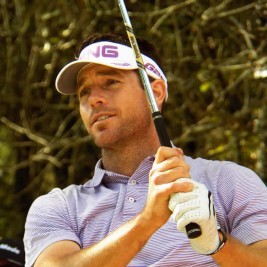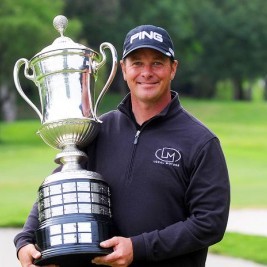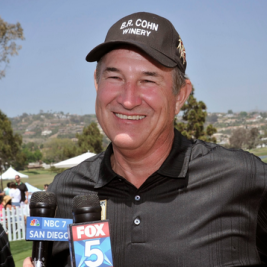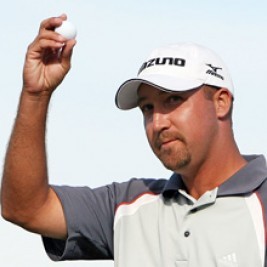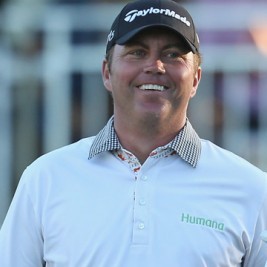
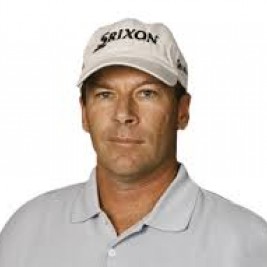
Corporate Appearances, Speaking Engagements, Autograph Signings, Endorsements, VIP Meet & Greets, Store Grand Openings
Book John Huston for a Speaking Engagement
Businesses, Non-profit organizations, event planners and companies across the country have worked closely with our booking agents to hire John Huston for a speaking engagements, guest appearances, product endorsements and corporate events. Many of those same clients have continued to turn to our speakers bureau as we can easily align John Huston’s availability with their upcoming seminar, gala, annual conference, corporate function, and grand opening. Our close relationship with John Huston’s booking agent and management team further enables us to provide inquiring clients with John Huston’s speaking fee and appearance cost.
If your goal is to hire John Huston to be your next keynote speaker or to be the next brand ambassador our celebrity speakers bureau can assist. If John Huston’s booking fee is outside your companies budget or your unable to align with his appearance availability, our booking agents can provide you a list of talent that aligns with your event theme, budget and event date.
At 37 he has spent his entire adult life as a professional golfer. He has played on the PGA Tour since 1987. He says if he weren't playing on the PGA Tour, he would be a mini-tour player. He's a man who loves his job. But even with his passion and dedication, he has experienced times of frustration with his career, thus proving that professional golf is like any career and subject to the same human foibles.
"You keep trying to improve when you're playing on the Tour," says Safety Harbor's Huston, "and for the first five or six years I was hitting the ball well, but I wasn't doing as well as I wanted and I got bored."
Huston's boredom turned to frustration. The fact that he had built a solid playing career wasn't satisfying enough anymore. He had reached a point at which, although he couldn't quantify what would be "enough," he knew something was lacking. "It started about 1994," he says, "and through '95 and '96, I felt I was playing well, but I wasn't winning when I had the chance. I got really frustrated. Last year, I had some nagging injuries, and that added to the frustration. It got tough."
With an injured wrist that forced him to withdraw from three of his last four tournaments of the year, he earned just $3,105 in his final eight starts in 1997. The bottom line was, Huston had his worst year on Tour, winning just $151,840 and finishing 141st on the money list. If he hadn't built as solid a career as he had prior to that, he would have found himself back in Q-School, trying to regain his playing privileges for the 1998 season.
However, the PGA Tour offers a provision for those who have built a solid career and have an unsuccessful campaign. By ranking in the top 50 on the all-time money list with $4,067,085, Huston had a one-time opportunity to recoup his losses with a special season-long exemption. He took the opportunity to rediscover his game and his enthusiasm. "I completely got away from golf for three months at the end of last year," he says, explaining how he rekindled his competitive flame. "I got my body healthy and got ready to play golf again. When the season started, I was ready to play."
Although Huston made no major swing changes, he definitely made a mental adjustment. The experience he'd gained over the years kicked in, and he had a stronger emotional attitude when the 1998 season started. "I'm pretty good at avoiding the over-analyzing of my golf swing," he says. "More than anything, at the start of the year, I worked on my overall swing rhythm. I worked on this with David Leadbetter a little. He's the only person I've ever worked with. When I started with him, the only players he was working with were Nick Price, Denis Watson and myself.
"Mentally, I was determined not to let bad shots bother me," says Huston. "I'd get wrapped up in a bad shot and had a very tough time seeing the big picture. Even in great rounds, you're going to have a bad shot. I couldn't let it affect me if I was going to be successful."
Huston made one other important alteration as well. He took the chance that has not always proven successful for top-level players&emdash; he changed equipment. Not only did he change his brand of clubs, he actually field-tested a new variance in golf equipment technology. Huston came out on Tour hitting the Wilson Fat Shaft irons, clubs that incorporate a technological advancement that stabilizes the angle of the clubface at impact with a wider shaft at the hosel.
Equipment changes on the PGA Tour are sometimes a dice roll for the player. They can make a major improvement in the player's game (e.g., Mark O'Meara's switch to Taylor Made) or they can lead to a quick downward spiral (e.g., Corey Pavin's switches to Cleveland and PRGR).
Huston quickly found he'd made the right decision. He finished 10th and eighth at the Bob Hope Chrysler Classic and the Phoenix Open to start his season with a quick $120,983.33. But it was at the United Airlines Hawaiian Open, his fourth start of the year, that Huston served notice to one and all that not only was he back, he was better than ever.
Starting out with a 9-under-par 63 at the Waialae Country Club, he followed with rounds of 65, 66 and 66 for a 260-total, a PGA Tour record at 28-under par for the week. Huston broke Steve Jones' record of minus-26 at the 1997 Phoenix Open.
"It wasn't tough adjusting to the new clubs," says Huston in a masterful understatement, "although you never know until you're out there whether or not they're going to work. You don't have a test period. We've already renewed our contract with Wilson for another two years. I was lucky. There are a lot of guys who tell you they can play with anything. It's an ego thing, but you never know until you're out there."
Not only did Huston's record serve to affirm his equipment change, it provided a catalyst for rethinking his status as a player on the grand scale of the PGA Tour. "It certainly raised my expectations," says Huston, referring to the effect of his fourth PGA Tour title and first win outside of Florida. "It had to. It was a week where everything fell into place, and it showed me what could happen. I didn't let any bad shots get to me, and it worked."
Now Huston feels he'll be playing in major tournaments to compete rather than merely to participate. "The majors are very important because of how everyone looks at them," says Huston. "There's a lot more media attention at the majors, and there's a lot more excitement. It takes experience to handle all of the things that go on during a major tournament. If you look at the winners of the first three majors of the year [Mark O'Meara, Masters and British Open; Lee Janzen, U.S. Open], they're experienced players who can handle it all. I think now, at my age, I have the experience I need to play well."
Huston has a pecking order for the major tournaments. While he would clearly be thrilled to win any of them, he seems to favor a couple. "I think the Masters and the British Open are the two best tournaments of the majors," he says. "I like the links-type of courses played in the British Open. I like the wind and I like to see hard and fast courses like we have here in Florida. The U.S. Open is a great tournament, but if you get off the fairway, you have no chance. You have to have a lot more luck to win the U.S. Open than any of the other majors, and I think the PGA Championship falls somewhere in between the others and the U.S. Open."
With all that is happening in golf, Huston couldn't have chosen a better time to regain his playing edge. Next year, the purses will rise to a minimum of $3-million, meaning the winners will reap $540,000. "The bar definitely has been raised," says Huston. "Certainly, no one would have believed golf would reach that level. Golf, in the past, has always been viewed as the fourth or fifth sport in terms of money. Now, it's almost on an even keel with the big team sports for potential earnings."
One thing past experience will prevent Huston from doing is chasing the inflated dollars at the expense of his family and health. "I'll still play between 23 and 25 tournaments next year like I always have," he says. "With the nagging injuries I've had in the past, I know I shouldn't play more than three weeks in a row and I won't. I have to pace myself.
"More importantly," he says, "I don't want to be away from my family more than I have to. We've reached an agreement about how much I can be away from home, and I'm going to stick to it. It's not a lot of fun being away from home and my family more than I have to be."
After seeing the renewed success of veteran players over the last two years, Huston, like so many others in his age bracket, confronts the game with rekindled enthusiasm and hope. His ever-brightening future might make it easy to forget his roots, but Huston chuckles when he thinks back to his days of teeing it up on the mini-tours around Florida. "There sure wasn't much money back then," he says, "so you had to play well every week. It was a real learning process. You have to learn to shoot low scores. If I talk to a young player today, the first thing I tell him is to learn how to shoot low scores &emdash; be able to deal with a good round and make it better."
Huston learned that lesson and he learned it through experience. In those days, he didn't have a clothing or equipment contract. The closest he came to such a thing was wearing a cap emblazoned with the logo of Larry's Ice Cream, the frosted Tampa/Clearwater empire of Larry Kirian. "Larry was one of my sponsors when I started out on the mini-tours," says Huston. "It was tough playing with sponsors because you feel like you're part of a team, and when you don't play well, you feel like you've let the whole team down. You're not only playing for yourself, but people who believe in you. It was hard.
"I played with a sponsor for the first three months I played on Tour and then I had a third place finish and didn't have to have a sponsor after that. It was a lot easier after that."
The thoughts of last year's frustration and anguish are now far removed from Huston's psyche. He's now a player on the move upwards to the next echelon on the PGA Tour. In the past, his confidence might have been born of a few good rounds. Today, Huston possesses the confidence that comes only from experience. Like a broken bone that is stronger after it has healed, out of his adversity, Huston has restructured his confidence and his future and he's done it at absolutely the right time.

Let our team of booking agents help create a memorable experience with hiring John Huston for your store grand opening, golf outing, trade show booth or corporate outing.
NOPACTalent acts as a Celebrity Speakers Bureau and Athlete Booking agency for corporate functions, appearances, private events and speaking engagements. NOPACTalent does not claim or represent itself as John Huston’s speakers bureau, agent, manager or management company for John Huston or any celebrity on this website. NOPACTalent represents organizations seeking to hire motivational speakers, athletes, celebrities and entertainers for private corporate events, celebrity endorsements, personal appearances, and speaking engagements.



